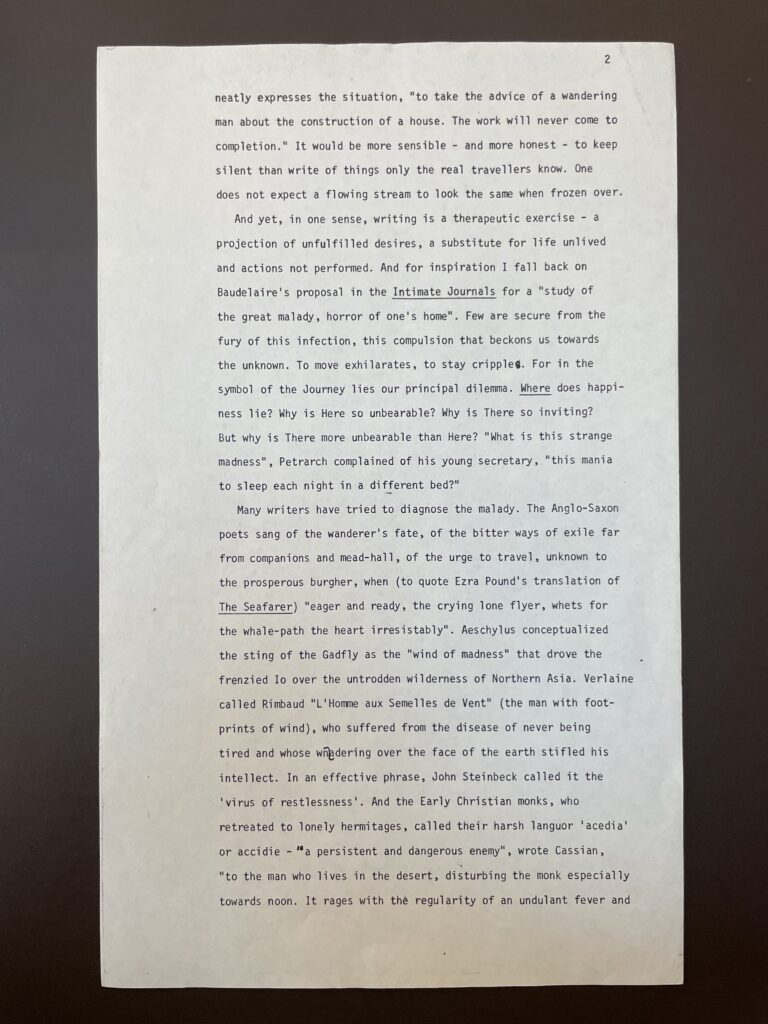The Nomadic Alternative – Page 2
The Nomadic Alternative
Page 2
neatly expresses the situation, “to take the advice of a wandering man about the construction of a house. The work will never come to completion.” It would be more sensible – and more honest – to keep silent than write of things only the real travellers know. One does not expect a flowing stream to look the same when frozen over.
And yet, in one sense, writing is a therapeutic exercise – a projection of unfulfilled desires, a substitute for life unlived and actions not performed. And for inspiration I fall back on Baudelaire’s proposal in the Intimate Journals for a “study of the great malady, horror of one’s home”. Few are secure from the fury of this infection, this compulsion that beckons us towards the unknown. To move exhilarates, to stay cripples. For in the symbol of the Journey lies our principal dilemma. Where does happiness lie? Why is Here so unbearable? Why is There so inviting?
But why is There more unbearable than Here? “What is this strange madness”, Petrarch complained of his young secretary, “this mania to sleep each night in a different bed?”
Many writers have tried to diagnose the malady. The Anglo-Saxon poets sang of the wanderer’s fate, of the bitter ways of exile far from companions and mead-hall, of the urge to travel, unknown to the prosperous burgher, when (to quote Ezra Pound’s translation of The Seafarer) “eager and ready, the crying lone flyer, whets for the whale-path the heart irresistably”. Aeschylus conceptualized the sting of the Gadfly as the “wind of madness” that drove the frenzied Io over the untrodden wilderness of Northern Asia. Verlaine called Rimbaud “L’Homme aux Semelles de Vent” (the man with foot-prints of wind), who suffered from the disease of never being tired and whose wandering over the face of the earth stifled his intellect. In an effective phrase, John Steinbeck called it the ‘virus of restlessness’. And the Early Christian monks, who retreated to lonely hermitages, called their harsh languor ‘acedia’ or accidie – “a persistent and dangerous enemy”, wrote Cassian, “to the man who lives in the desert, disturbing the monk especially towards noon. It rages with the regularity of an undulant fever and
Editor's Note: This text has been transcribed automatically and likely has errors. if you would like to contribute by submitting a corrected transcription.
